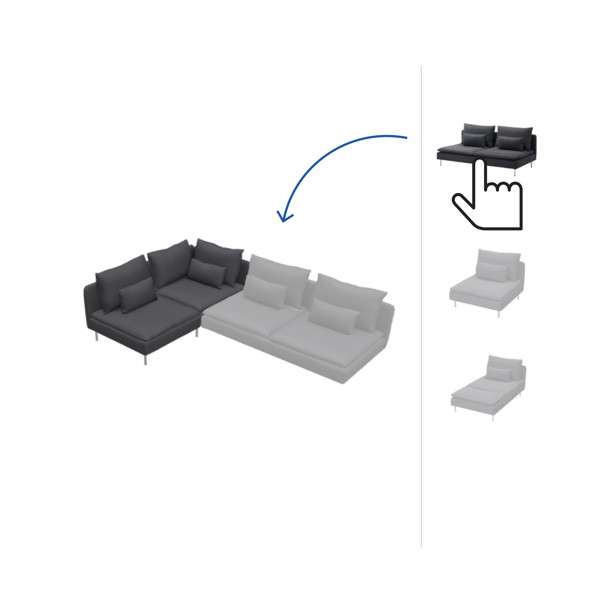We use cotton in many of our products, from sofas and cushions to bed linen and mattresses. It is a soft, durable and renewable fiber that breathes and is good at absorbing moisture. All these great qualities make cotton one of our most important materials, but it isn’t without its challenges, much having to do with conventional farming methods that negatively impact the environment and poor working conditions for farmers. With our size and production volumes, we want to drive change in the cotton industry. By only using recycled cotton or cotton from more sustainable sources, working with partnerships and initiatives on the ground and prioritizing compliance, we believe that we can make a positive impact in the world of cotton.
Since 2015, all cotton in IKEA products is either recycled or comes from more sustainable sources*. This means that we only source cotton grown using sustainable farming practices that reduce the use of fertilisers, pesticides and water, improve working conditions and earnings for farmers, and benefit ecosystem health and biodiversity conservation. We have set up a system that enables use to trace all our cotton and ensure that the final product is from approved, certified sources. *Cotton from more sustainable sources commits to the following schemes: Better Cotton (as defined by BCI, including their equivalence in various geographies), cotton from farmers working towards the BCI standard (TBC).
Each year, IKEA uses around 0.5 percent of all cotton grown around the world. This may not seem like a lot, but the number is big enough to drive change in the industry. For many years, we have been working with partners and stakeholders globally to transform conventional large-scale cotton farming and set social and environmental standards for cotton production. As an example, we helped set up the Better Cotton Initiative (BCI) who runs the world’s largest cotton sustainability programme. BCI exists to make global cotton production better for the people who produce it, better for the environment it grows in and better for the sector’s future. Today, more than 110,000 farmers have adopted more sustainable farming practices within IKEA projects.
All IKEA products are produced in accordance with the IKEA IWAY Standard, our Supplier Code of Conduct. It sets out the minimum environmental and social standards expected from our suppliers, including compliance with local laws. We do not accept any form of forced labor, child labor or treatments in breach of our supply chain requirements. Our cotton teams across the globe ensure that all cotton used in IKEA products meets the demands of compliance in our supply chain. By having teams on the ground in areas where it has previously been challenging to work responsibly, we can challenge the traditional ways of working and improve the industry. If we discover that we are acting in places where we cannot ensure our requirements are being met, we follow-up on the ground and drive change.






